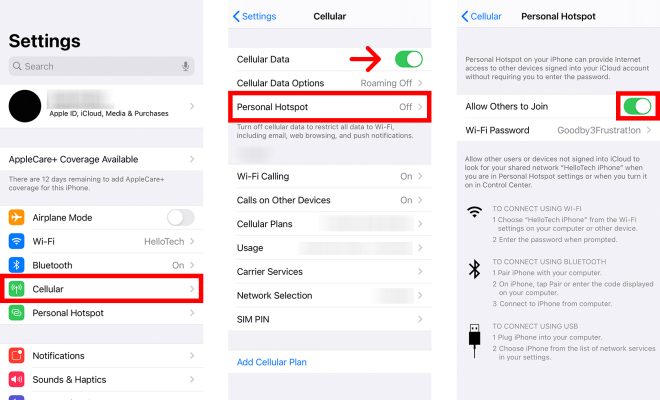The Best Websites for Expanding Your Scientific Knowledge

Science is a vast field, and keeping up to date with the latest advancements can be challenging, particularly when there are so many different specialties to consider. Yet, the internet provides an abundance of resources that can help you learn and expand your scientific knowledge. From online courses to interactive simulations and podcasts, there are a lot of excellent references that will help you keep track of the latest discoveries and theories. In this post, we will explore some of the best websites for expanding your scientific knowledge.
1. Khan Academy
Khan Academy is a free online educational platform that provides a range of courses and lessons to help learners from all over the world. It has an extensive library of courses on different scientific subjects such as biology, chemistry, physics, astronomy, and many more. The courses are designed for both beginners and advanced learners, and they come with video and audio lessons, interactive practice exercises, and even quizzes to test your knowledge.
2. National Geographic
National Geographic is one of the most popular websites for exploring the natural world around us. It provides a wealth of information on everything from animal behavior and climate change to space exploration and geology. The site features informative articles, photo galleries, and interactive maps that help you learn about the world’s most fascinating scientific discoveries.
3. Science Daily
Science Daily is a website that brings up-to-date scientific news and research to the public. The site covers a wide range of subjects, including health, environment, technology, and more. It’s an excellent resource for staying up-to-date with the latest scientific discoveries, as the site publishes new content every day.
4. MIT OpenCourseWare
If you want to learn from the best scientists in the world, then MIT OpenCourseWare is the place for you. This website provides learners access to the courses taught at MIT. It covers various scientific topics like biology, chemistry, physics, and biomedical engineering. The best part is that all of the course materials, including lectures, notes, assignments, and exams, are available for free.
5. TED-Ed
TED-Ed is a website that provides animated video lectures on a wide range of scientific topics. The website’s style is engaging and easy to understand, making it the perfect resource for learners of all ages. TED-Ed animations summarize complex ideas and break them down into simple, easy-to-understand concepts.
6. Coursera
Coursera is an online education platform that offers numerous online courses taught by top universities and colleges worldwide. It offers courses on a wide range of scientific topics, including machine learning, data science, physics, and astronomy. Coursera provides a certificate of completion upon the successful completion of each course.
7. BrainPOP
BrainPOP is an animated educational platform that offers science curriculum for students from kindergarten through grade 12. The site provides interactive lessons, quizzes, and games on different scientific topics such as biology, chemistry, and physics. BrainPOP is an excellent resource for learners of all ages and makes science education accessible to everyone.
Conclusion
These are just a few of the many excellent websites that you can use to expand your scientific knowledge. The internet offers us an abundance of information to learn from, and with so many different sites and resources available, there’s no excuse not to keep up with the latest advancements in science. Whether you’re a student, a teacher, or just an enthusiast, these sites are an excellent place to start.






